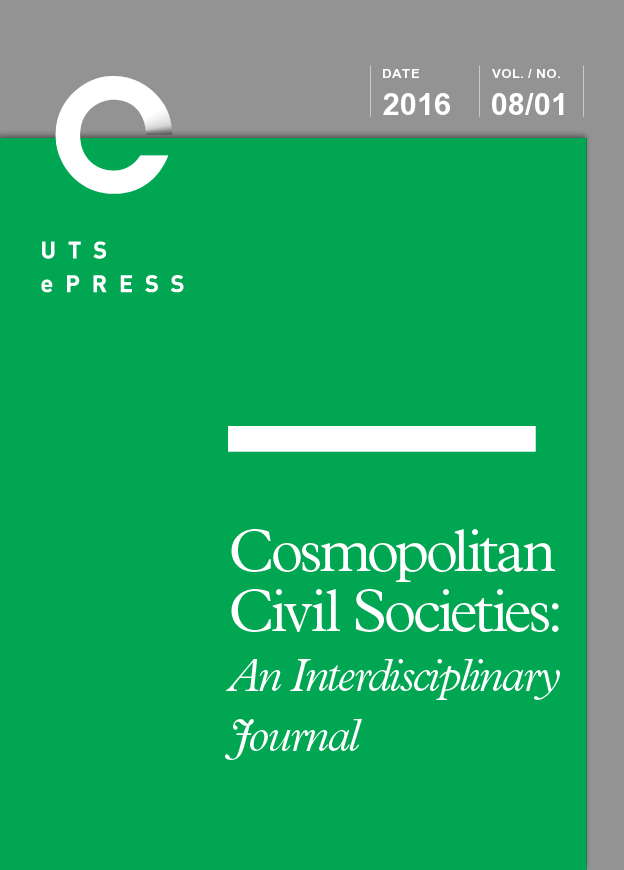Alien life matters: reflections on cosmopolitanism, otherness, and astrobiology
Main Article Content
Abstract
This is a synaptic paper that invites the reader to take a stroll on the edges of cross-disciplinary knowledge. We will walk the roads of anthropology, history, philosophy, astronomy and biology. It is mainly a theoretical article, where I attempt to provide links between authors and theories that were, at first sight, unrelated. In doing so, this paper is aimed at making one controversial claim: ideologically and politically speaking, cosmopolitanism may never fully transcend itself beyond a debate until and unless humankind encounters alien life forms. The argument is based on a simple equation. Despite all the quarrels and debates around the concept, it seems innocuous to assume that cosmopolitanism is the search for a certain universal identity or, at least, a search for a common culturalia, i.e. the cultural grounds wherein local and global senses of universalism come into being (section 2). In spite of the fact that identities are built in opposition and supported by difference (section 3), cosmopolitanism might only be possible as a political project (cosmopolitics) when humankind is faced with life forms that are capable of providing true Otherness. I believe that this may explain why we have been fascinated by the utopias of extra-terrestrials for many centuries now (section 4). These utopias are present in a diverse array of knowledges, ranging from science to art, literature or even religion. They have been around for at least 500 years. Until now, all of them have been trapped in the realm of imagination, but there is one concrete cluster of knowledge that has attempted to transpose these imaginings into reality: the promising discipline of astrobiology. Astrobiology is mainly troubled by the de-naturalisation of Earth in order to create analogues for the study of life elsewhere in the cosmos. Provocatively, I end up this paper stating that this may well be the most cosmopolitical practice available to us (section 5).
Article Details
Issue
Section
Authors who submit articles to this journal from 31st March 2014 for publication, agree to the following terms:
a) Authors retain copyright and grant the journal right of first publication with the work simultaneously licensed under a Creative Commons Attribution License that allows others to share and adapt the work with an acknowledgement of the work's authorship and initial publication in this journal.
b) Authors are able to enter into separate, additional contractual arrangements for the non-exclusive distribution of the journal's published version of the work (e.g., post it to an institutional repository or publish it in a book), with an acknowledgement of its initial publication in this journal.
c) Authors are permitted and encouraged to post their work online (e.g., in institutional repositories or on their website) prior to and during the submission process, as it can lead to productive exchanges, as well as earlier and greater citation of published work (See The Open Access Citation Advantage Service). Where authors include such a work in an institutional repository or on their website (ie. a copy of a work which has been published in a UTS ePRESS journal, or a pre-print or post-print version of that work), we request that they include a statement that acknowledges the UTS ePRESS publication including the name of the journal, the volume number and a web-link to the journal item.
d) Authors should be aware that the Creative Commons Attribution (CC-BY) License permits readers to share (copy and redistribute the work in any medium or format) and adapt (remix, transform, and build upon the work) for any purpose, even commercially, provided they also give appropriate credit to the work, provide a link to the license, and indicate if changes were made. They may do these things in any reasonable manner, but not in any way that suggests you or your publisher endorses their use.
For Volume 5 No 3 (2013) and before, the following copyright applied:
Authors submitting articles to UTSePress publications agree to assign a limited license to UTSePress if and when the manuscript is accepted for publication. This license allows UTSePress to publish a manuscript in a given issue. Articles published by UTSePress are protected by copyright which is retained by the authors who assert their moral rights. Authors control translation and reproduction rights to their works published by UTSePress. UTSePress publications are copyright and all rights are reserved worldwide. Downloads of specific portions of them are permitted for personal use only, not for commercial use or resale. Permissions to reprint or use any materials should be directed to UTSePress.
